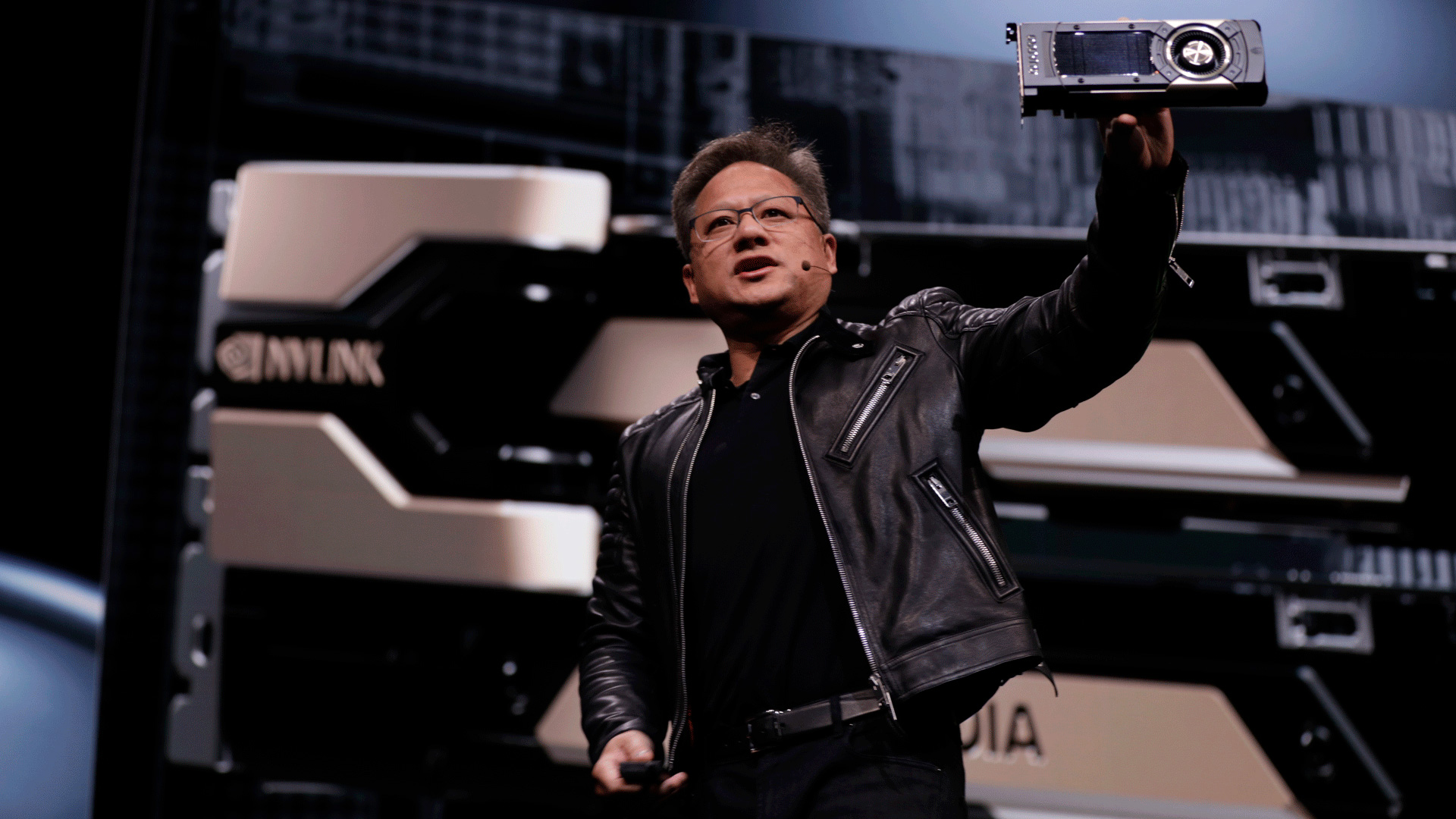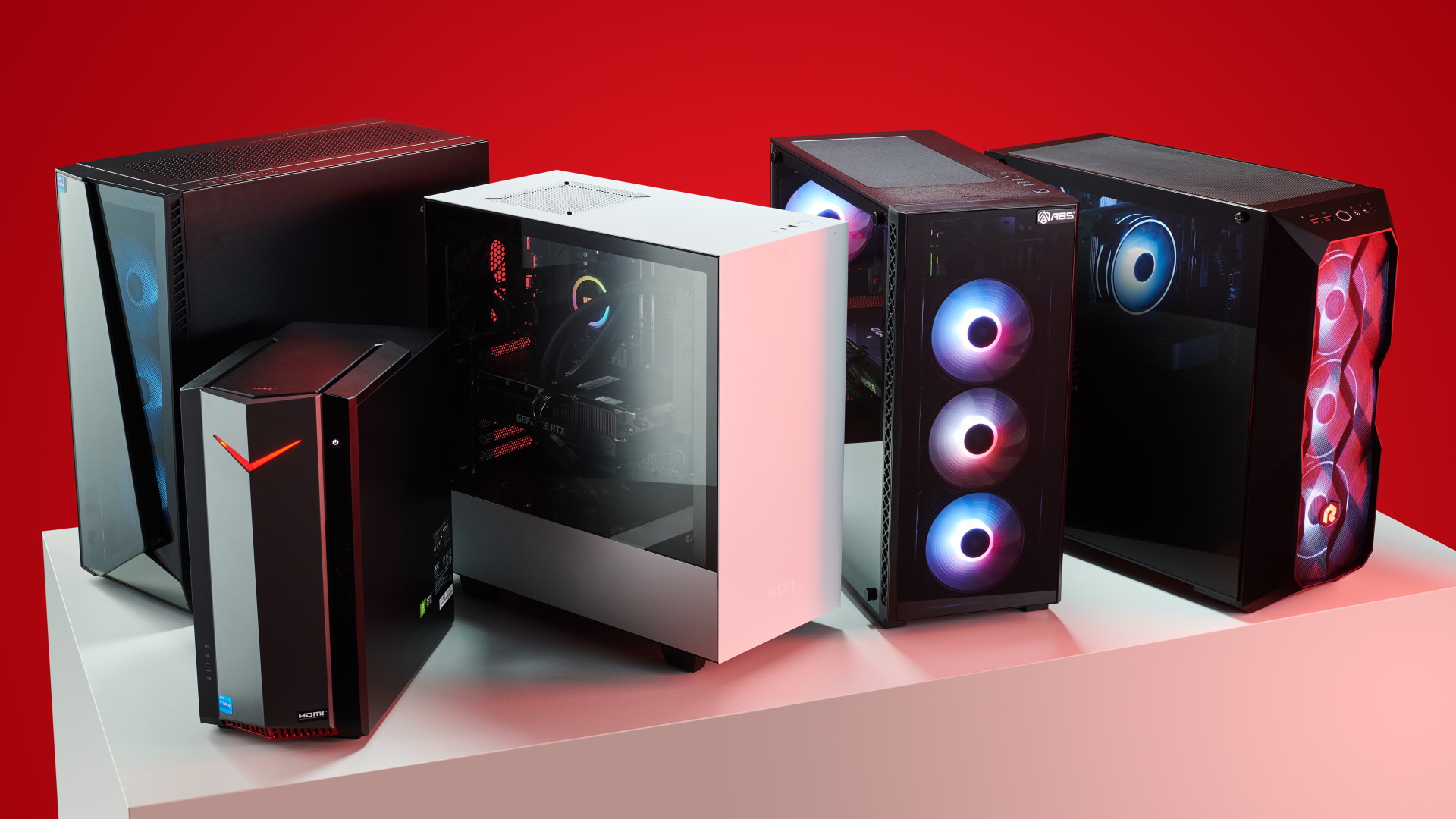Nvidia CEO Jensen Huang reckons we might see AI-generated games in less than 10 years
If we could sort out old-fashioned AI in games first, that'd be grand. Oh who am I kidding, bring 'em on.

AI-generation has been making huge leaps and bounds in recent years, from prompt-based image generation through to recent developments in fully AI-generated video. When it comes to our games though, most of the AI innovation has been limited to things like upscaling existing content.
That might be about to change in the next decade, however, if Jensen Huang's latest predictions turn out to be correct, as the Nvidia head-honcho reckons we may be less than 10 years away from fully AI-generated games.
Huang held a Q&A session at the Nvidia GPU Technology Conference (GTC) this week, after knocking the attendees for six with an earlier reveal of the latest Blackwell AI chips. Not content to rest on his laurels, he also provided us with an intriguing glimpse into his predictions for the future of AI-generation in gaming in an interview with Tom's Hardware. When asked as to how close we are to a world where every pixel is generated in real-time, and what his vision is for gaming in that space, he responded:
"I think it's less than ten years away… in five years from now, you're probably right in the middle where everything is changing in real-time, and everybody's going, 'Oh, look at that, this is happening.' And so you've just got to decide, are we two years into it, into that ten years? Probably, we're probably already two years into it. And so I would say that within the next five to ten years, somewhere in between, it's largely the case."
Well, that makes things clear then. However, activating my CEO translation device reveals that it looks like Jensen thinks that within five to ten years we may well see AI-generation capable of creating games in their own right, on a pixel-by-pixel basis.
It's sometimes tempting to think of the way our machines seem to "create" games currently as "generation", but in reality we are merely witnessing the graphical output of a rendering and rasterization process. AI-generated games would be a different process entirely, and likely an extremely hardware dependent endeavour.
After all, the current most powerful GPU, the RTX 4090, would make a poor real-time AI-generation device, as many GPUs and hours of computation time are required to generate something like a single AI-generated video as things currently stand.
Keep up to date with the most important stories and the best deals, as picked by the PC Gamer team.
Of course, in ten years time we could all be playing our games on the cloud, perish the thought, and perhaps that might be the key to offloading such a gigantic workload from our personal systems at home.

Best gaming PC: The top pre-built machines.
Best gaming laptop: Great devices for mobile gaming.
Not only that, but presumably along the way we'll see more and more AI-generation features added to our games piecemeal, like individual asset generation and AI NPCs, a development that seems tantalisingly close thanks to technology like Nvidia ACE, or other similar generative AI methods.
That being said, it does make you wonder as whether you could replace the sweat and toil of talented artists and coders who work tirelessly to create hand-crafted content with AI-generation, from either a moral or artistic perspective. An AI-generated game would be fun to experiment with on a conceptual level, but as to whether it could create anything of artistic or creative value remains to be seen.
It's also worth noting that of course Jensen and Nvidia as a whole has a vested interest in AI being used in every application imaginable, given that it's currently raking in huge revenue from its AI-crunching hardware business.
Still, ten years is still a relatively short time, even at the current rate of AI development, so the Nvidia CEO's comments are at the very least an intriguing glimpse into the timeframe of this potential future, from the mind of someone who has their finger firmly on the pulse of what's possible in the space.

Andy built his first gaming PC at the tender age of 12, when IDE cables were a thing and high resolution wasn't—and he hasn't stopped since. Now working as a hardware writer for PC Gamer, Andy's been jumping around the world attending product launches and trade shows, all the while reviewing every bit of PC hardware he can get his hands on. You name it, if it's interesting hardware he'll write words about it, with opinions and everything.

